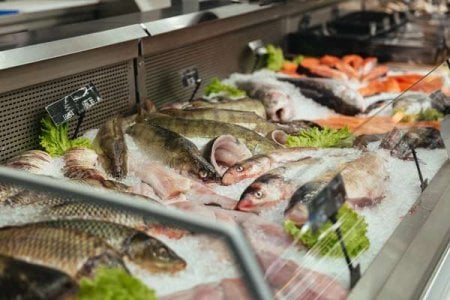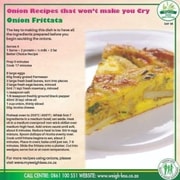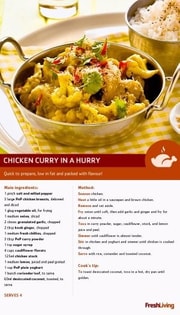Popular fish might disappear amid aquaculture push, expert says
By
- Replies 11
The Australian culinary scene is about to undergo a significant transformation.
A staple of Aussie restaurant menus and supermarket shelves, the popular ocean fish King George whiting, is on the brink of becoming a rarity.
The culprit? The rise of aquaculture, which is proving to be a more cost-effective and sustainable alternative to commercial trawling.
Observers say that species such as tuna and salmon, which flourish in ocean pens, are set to become the norm. However, other species that grow slowly in captivity may soon become a niche offering, difficult to find and likely more expensive.
Ocean ecology specialist Professor Jianguang Qin explains that while the Yellowtail Kingfish has been successfully farmed, not all species are suited to this method.
'For fisheries, the only cost is going to the ocean and catching them, but for aquaculture, we need to consider if they will make money or not. For example, the King George whiting is a wonderful fish in the ocean, however, when they try to cultivate them in aquaculture, their growth is too slow; they can’t make money out of it,' he said.
King George whiting is one of the most commonly eaten fish in Australia, particularly in restaurants. But even if it isn't commercially farmed, we may not see 'whiting' disappear completely.
‘King George whiting is not necessarily the most popular fish in this category. Sand whiting and school whiting both sell in much higher volumes than King George whiting at our daily auction,’ according to Sydney Fish Market's head of quota, Gus Dannoun.
Based at Flinders University, Professor Qin believes that farmed fish will increasingly become rampant, a shift that can help alleviate pressures on wild populations stressed by rising water temperatures and overfishing.
This could be the most significant change to commercial fishing since super-trawlers began revolutionising the industry in the 1950s.
However, this shift could also limit the variety of species available, leading to a homogenisation of seafood options.
This mirrors the 20th century’s agricultural green revolution, which saw high-yielding crops being dominant, and rare plants and seeds becoming less common. Some low-yield grains even faced extinction.
Despite these concerns, Qin hopes the upcoming 'blue revolution' could save some species from extinction.
In Victoria, researchers are hoping to have a breakthrough and understand how to properly breed endangered Macquarie perch, a rare fish that anglers are banned from reeling.
Through a competent and controlled production environment, Qin believes aquaculture fish produce will be 'safer' for consumers.
In particular, toxic materials like mercury, which are common in larger marine species like sharks, usually sold as flakes, will be lesser in species chosen for aquaculture.
As we move towards a future where aquaculture dominates, it's essential to remember the importance of biodiversity.
While farmed fish may become the norm, we must strive to protect and preserve our native species, both for their ecological value and for the diversity they bring to our plates.
By adopting sustainable practices and innovative technologies, we can ensure that our seafood industry remains vibrant and robust, while also protecting our precious marine ecosystems.
So, the next time you sit down to a seafood dinner, take a moment to appreciate the journey your meal has taken from the ocean to your plate.
And remember, every choice we make as consumers can help shape the future of our oceans and the incredible life they hold.

What are your thoughts on this shift towards aquaculture? Have you noticed a change in the seafood available at your local supermarket or favourite restaurant? Share your thoughts and experiences with us in the comments below.
A staple of Aussie restaurant menus and supermarket shelves, the popular ocean fish King George whiting, is on the brink of becoming a rarity.
The culprit? The rise of aquaculture, which is proving to be a more cost-effective and sustainable alternative to commercial trawling.
Observers say that species such as tuna and salmon, which flourish in ocean pens, are set to become the norm. However, other species that grow slowly in captivity may soon become a niche offering, difficult to find and likely more expensive.
Ocean ecology specialist Professor Jianguang Qin explains that while the Yellowtail Kingfish has been successfully farmed, not all species are suited to this method.
'For fisheries, the only cost is going to the ocean and catching them, but for aquaculture, we need to consider if they will make money or not. For example, the King George whiting is a wonderful fish in the ocean, however, when they try to cultivate them in aquaculture, their growth is too slow; they can’t make money out of it,' he said.
King George whiting is one of the most commonly eaten fish in Australia, particularly in restaurants. But even if it isn't commercially farmed, we may not see 'whiting' disappear completely.
‘King George whiting is not necessarily the most popular fish in this category. Sand whiting and school whiting both sell in much higher volumes than King George whiting at our daily auction,’ according to Sydney Fish Market's head of quota, Gus Dannoun.
Based at Flinders University, Professor Qin believes that farmed fish will increasingly become rampant, a shift that can help alleviate pressures on wild populations stressed by rising water temperatures and overfishing.
This could be the most significant change to commercial fishing since super-trawlers began revolutionising the industry in the 1950s.
However, this shift could also limit the variety of species available, leading to a homogenisation of seafood options.
This mirrors the 20th century’s agricultural green revolution, which saw high-yielding crops being dominant, and rare plants and seeds becoming less common. Some low-yield grains even faced extinction.
Despite these concerns, Qin hopes the upcoming 'blue revolution' could save some species from extinction.
In Victoria, researchers are hoping to have a breakthrough and understand how to properly breed endangered Macquarie perch, a rare fish that anglers are banned from reeling.
Through a competent and controlled production environment, Qin believes aquaculture fish produce will be 'safer' for consumers.
In particular, toxic materials like mercury, which are common in larger marine species like sharks, usually sold as flakes, will be lesser in species chosen for aquaculture.
As we move towards a future where aquaculture dominates, it's essential to remember the importance of biodiversity.
While farmed fish may become the norm, we must strive to protect and preserve our native species, both for their ecological value and for the diversity they bring to our plates.
By adopting sustainable practices and innovative technologies, we can ensure that our seafood industry remains vibrant and robust, while also protecting our precious marine ecosystems.
So, the next time you sit down to a seafood dinner, take a moment to appreciate the journey your meal has taken from the ocean to your plate.
And remember, every choice we make as consumers can help shape the future of our oceans and the incredible life they hold.
Key Takeaways
- Popular ocean fish like tuna and salmon are more commonly being farmed, and this could lead to certain slow-growing species becoming rarer in the wild and on menus.
- Professor Jianguang Qin discusses the economic viability of farming different species and notes the high cost and risk of cultivating slow-growing fish for aquaculture.
- The Sydney Fish Market highlights that while King George whiting is popular, other whiting species, such as sand whiting and school whiting, sell in much higher volumes.
- Aquaculture is seen as a way to alleviate pressure on wild fish populations and could lead to a more controlled and 'safer' product for consumers, with the potential to reduce the presence of pollutants and toxins such as mercury.
What are your thoughts on this shift towards aquaculture? Have you noticed a change in the seafood available at your local supermarket or favourite restaurant? Share your thoughts and experiences with us in the comments below.








